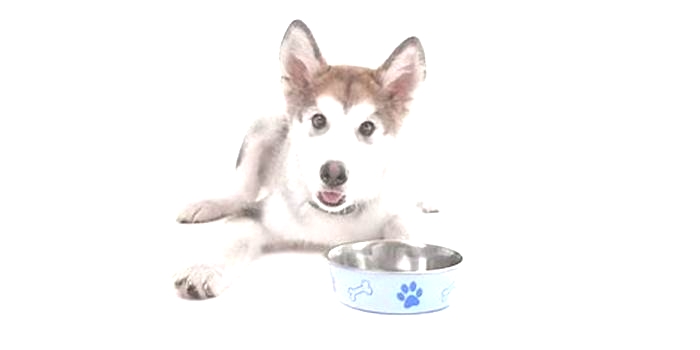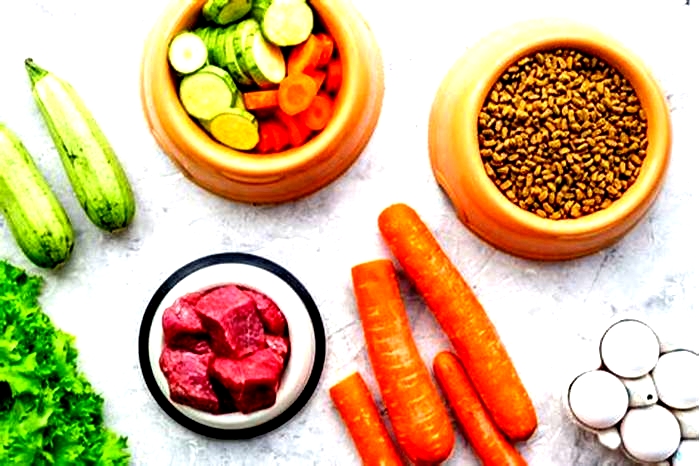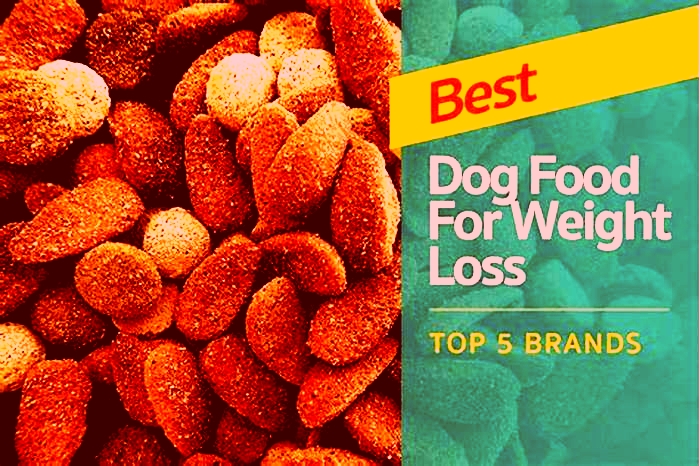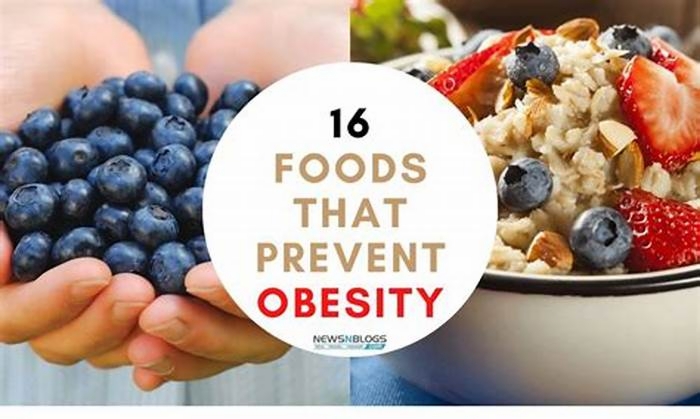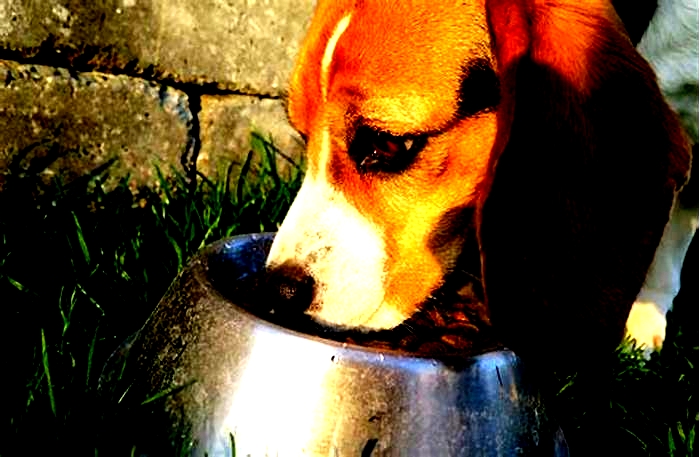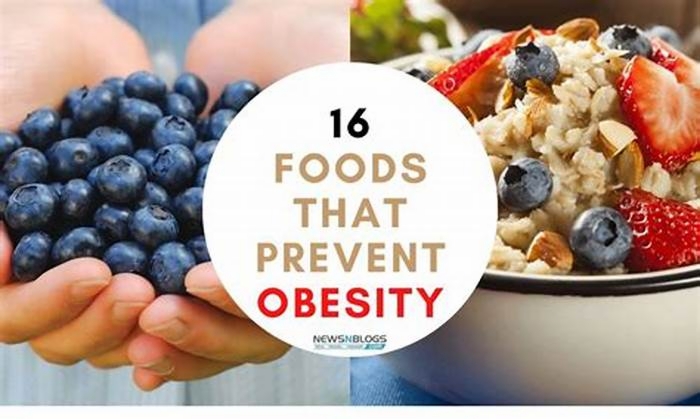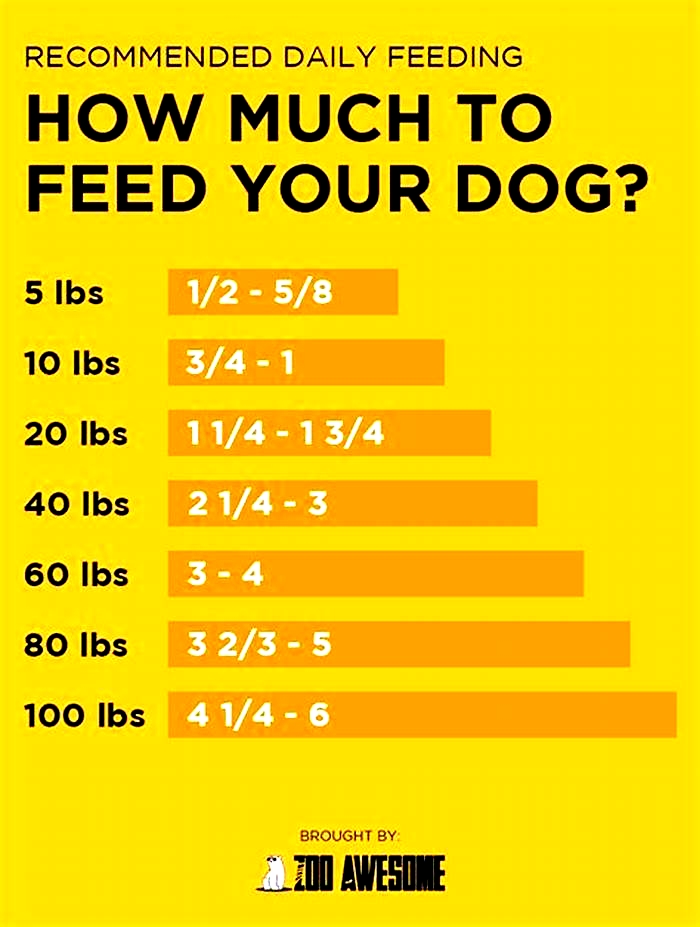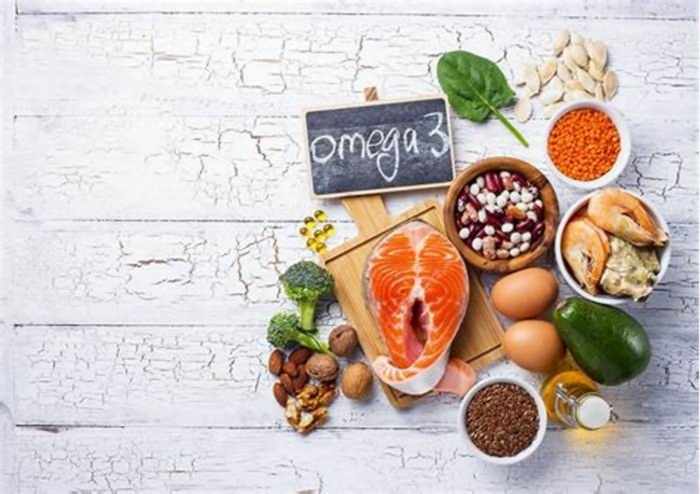What foods are huskies allergic to
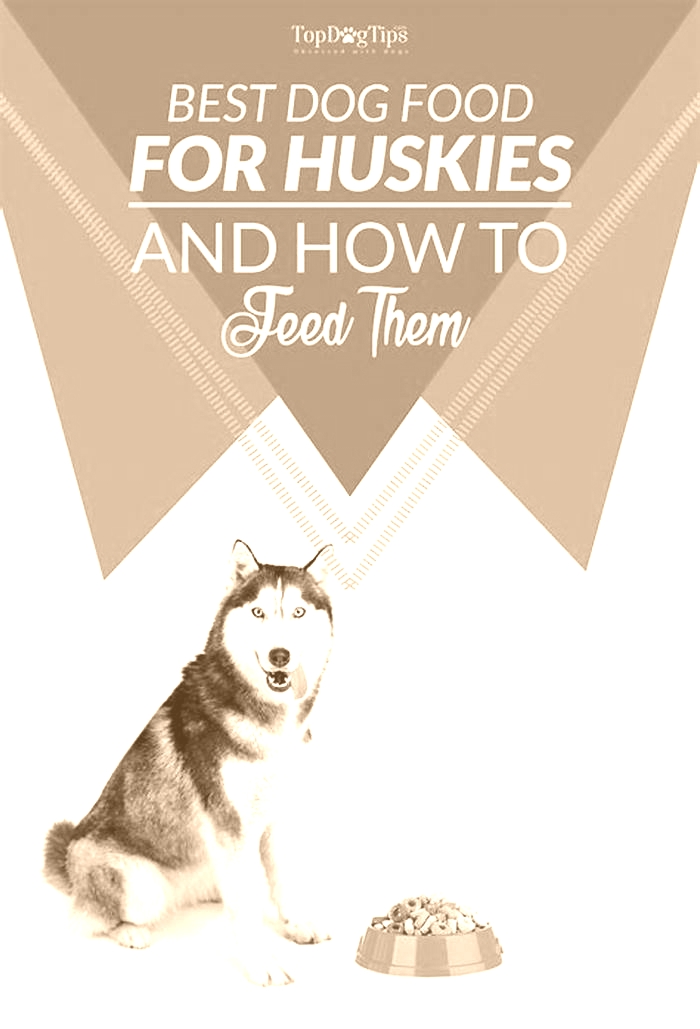
Common Allergies in Husky Dog Breeds
Siberian Huskies are built to survive in the cold weather of Alaska, to cope with the freezing temperature these dogs have a double-coat of fur. But having thick fur and other health factors makes them prone to different types of allergies. The most important thing about Huskies is that they get affected by zinc deficiency, which can cause lesions, itching, and hair loss on the genitals, footpads, and the face. This condition can be treated with zinc supplementation, and it gets healed too. Another condition in Huskies is nasal solar dermatitis, which is also known as Collie Nose, it mostly impacts Border Collie dogs, but it also affects Huskies.
This disease is related to sun exposure and zinc deficiency, which causes the nose skin of the dog to look sunburnt as it changes color; this health issue can also cause lesions, redness, and hair loss around the nose. In addition, environmental allergens can cause atopic dermatitis, a type of skin inflammation in Siberian Huskies. Pollen, grass, dust, and mold can cause allergies in your beloved Husky. Also, ticks, fleas, and mosquitoes may cause skin inflammation. Lets know more about common allergies in Husky dog breeds.
COMMON ALLERGY SYMPTOMS IN HUSKIES
* Paw chewing* Watery eyes* Itchy and dry skin* Sneezing* Breathing troubles* Vomiting* Diarrhea* Chronic ear infection* Nasal discharge
The good news is that, you can boost the immune system of your Husky and reduce the effects of allergies. Right doses of Omega fatty acids can fight against degenerative disorders and allergies that can cause arthritis and inflammation in dogs. According to research, Omega fatty acids can prevent allergies in puppies.
But the issue is, that dogs cant produce Omega fatty acids in their bodies, so they need an external dose of it.
COMMON ALLERGIES IN HUSKY DOG BREEDS
Huskies have some common allergies in them, and before you feel confused over the type your dog is affected with, lets know about the common allergies.
1. FOOD ALLERGY
Food allergies can cause scratchy ears, and itchy skin, just like other allergies, and your Husky may start to lick and bite their paws, rub their faces on the floor, can have diarrhea, start coughing, sneezing, flatulence, seizures, gagging, ear inflammation and other issues.
The most common allergens are found in day-to-day foods like chicken, whey, soy products, wheat, corn, preservatives, artificial flavorings, sugar, additives, eggs, milk, fish, pork, and beef. Therefore, you need to talk to the vet about identifying the allergic foods, and this will take weeks to figure out, but after you have decided on the foods, you need to create a diet chart for your Husky. The most common foods that can cause allergy in dogs are dairy products, corn, soy, wheat, eggs, fish, lamb, rabbit, chicken, pork, and beef.
2. BACTERIAL ALLERGY
Some dogs normally develop bacterial allergies, and when it happens it affects their skin and fur. Staphylococcus is the common bacteria that cause allergies in Husky dog breeds.
3. FLEA ALLERGY
Fleas can be the cause of allergies in Huskies, and its important to note that the saliva of fleas can cause itching. If you were unable to find any fleas on your dog, you must take your pooch to the vet to perform a flea detection test, and if the result comes positive, you need to remove the parasites and use the vet-prescribed shampoos, sprays on your dog and feed them the capsules with or without food.
Parasitic, food and flea allergy have similar symptoms. You need to check for fleas, and if the parasites are present, you need to use the vet-prescribed shampoos, and medications to eliminate the allergy issues. Also, you must identify your dogs behavior and health.
4. ENVIRONMENTAL ALLERGENS
Environmental allergens can cause itching in your dog, and this mainly happens when your Husky comes into contact with wood, grass, specific plants, flea collars, and sometimes dog shampoo as well. Its crucial to talk to your vet when you notice an allergic reaction in your puppy, and after the right diagnosis, you can take the right actions to prevent the allergies.
DIAGNOSING ALLERGIES IN HUSKIES:
Diagnosing allergies can be difficult. In the initial step, the vet will rule out the conditions that may be causing the allergic reaction in the dog. If the vet feels that allergy is the main reason, they will prescribe testing to decide on the cause. However, allergy tests for dogs do not always give the right solution.
In addition, food allergies can be diagnosed by the elimination of certain foods. Flea allergy can be diagnosed easily, as the dog already has the parasites on its coat, and killing the fleas can solve the issue.
HUSKY ALLERGY TREATMENT OPTIONS:
You need to look for organic shampoos that are sulfate-free and hypoallergenic. You can choose shampoos with natural ingredients like quercetin, aloe vera, and thyme can provide better assistance against allergies. Your vet can prescribe antihistamines or corticosteroids if the allergy issue in your Husky is causing more distress.
If your dog is still suffering from itchiness, you may have to look at the foods you feed them. You can consult a veterinary nutritionist who can help you find out the allergy source for the foods. The vet nutritionist may recommend eliminating some food items, and it may consist of fresh foods, which can help in the identification of the allergies in dogs. You can follow the below steps to apply the food elimination diet for your Siberian Husky:
* For eight weeks feed the dog the foods that he or she hadnt tasted before.* Avoid giving the Husky supplements, flavored medications, table food, or treats within these eight weeks* The diet must have single types of vegetable protein, carbohydrate, and animal protein. You can give your pooch peas, rabbit, potato, and fish.* When the eight weeks are finally over, you can return to the normal diet. Observe, if your Husky is still having any allergic reactions.* You can also try adding probiotics to the dog diet. It can strengthen the immunity system of your Husky and may reduce allergic reactions.
CONCLUSION
If you are trying to eliminate the food base allergies in your Husky, you need to add more minerals and vitamins, and it must include zinc, which is the main reason for allergy issues in Huskies. Give your dog fresh foods which will provide better antioxidants, and it will support the health of the Husky. Furthermore, take a look at this article to know more about Husky allergies and their remedies.
75 Human Foods, Vegs & Fruits Siberian Huskies Can Eat (and 25 To Avoid )
Dogs love to eat, and Siberian Huskies are no different. We love giving our dogs whatever were eating, but not all human food is healthy for dogs. So, what human foods can Siberian Huskies eat?
Siberian Huskies can eat human foods such as beef, bread, corn, eggs, chicken, salmon, tuna, milk, mackerel, oatmeal, pasta, rice, yogurt, and pork. Human foods such as alcohol, chocolates, avocados, onions, macadamia nuts, grapes, and caffeine should be avoided because theyre toxic to dogs.
Knowing that Siberian Huskies love to eat, we have to keep in mind that the digestive system of a dog is different from that of a human. Some human foods are safe and nutritious for dogs, while others are unhealthy and detrimental to the health of your dog.
In this article, I will go over a list of 75 human foods your Siberian Husky can eat. Ill also provide you with foods they cant eat and how to prepare the foods they can eat to keep them on the safe side.
ALSO READ: How Much To Feed A Siberian Husky
Dairy Products
When used sparingly, organic dairy products are a great source of fat that can benefit the diet of an Siberian Husky. Dogs that are lactose intolerant may experience gas, bloating, vomiting, or diarrhea after consuming dairy products. Consult your vet before incorporating them into their food.
Can Siberian Huskies Eat Dairy Products?
Siberian Huskies can eat dairy products. Many dairy products, like cheese, yogurt, and milk, are healthy for your dog to consume in moderation. Your dog shouldnt be overfed dairy products, and some of them have lactose intolerance because they are unable to digest the sugars in dairy products.
What Dairy Products Can Siberian Huskies Eat?
Siberian Huskies can eat dairy products such as cheese, cottage cheese, cow milk, vanilla ice cream, whey, yogurt, and many more. They should avoid dairy products like goat milk, butter, margarine, and others because they contain toxins that are harmful to them if ingested in large quantities.
Cheese
Siberian Huskies can eat cheese. The caveat to giving them cheese is to feed them in moderation because theyre high in fat and calories. Cottage cheese is a good option because its low in fat.
Cheese contains other nutritional elements like zinc, phosphorus, calcium, and vitamins A and B12 that have great nutritional benefits for your dog.
Milk
Siberian Huskies can drink milk. However, like with other dairy meals, whether you feed it to your dog depends on his lactose tolerance. Nonetheless, milk has a lot of calcium and vitamin D that are beneficial for your dogs teeth and bones.
Milk is also high in potassium, which is good for the heart. It also contains all the essential amino acids, several vitamins and minerals, and healthful omega-3 fatty acids.
Yogurt
Siberian Huskies can eat yogurt. Yogurt is an awesome food for your dogs digestive system due to its high calcium and protein content and potential to operate as a probiotic. Keep to plain, natural yogurt or low-fat Greek yogurt if you want to feed yogurt to your Siberian Husky.
Additionally, make sure the yogurt doesnt include any artificial sweeteners (like xylitol) or additional sugar or fat, and just have one or two tablespoons to avoid stomach irritation.
Fruits
Dogs are omnivores, they dont need fruits to meet their nutritional requirements. However, adding fresh fruits to your dogs regular diet, with your vets approval and guidance, may provide them an extra dose of vitamins, minerals, and antioxidants as well as some extra source of hydration.
Can Siberian Huskies Eat Fruits?
Siberian Huskies can eat fruits. Fresh fruits are a healthy alternative to dog treats since they are full in vitamins, minerals, and antioxidants. However, they are also heavy in natural sugars and should be given in moderation, while some have seeds that are typically harmful to dogs.
What Fruits Can Siberian Huskies Eat?
Siberian Huskies can eat fruits such as apples, bananas, blackberries, blueberries, raspberries, strawberries, watermelons, oranges, mangoes, peaches, and many more. You shouldnt feed them grapes, avocados, lemons, and the pits or seeds of most fruits because theyre poisonous to your dog.
Apples
Siberian Huskies can eat apples. They are an excellent source of fiber, calcium, phosphorus, and vitamins A and C. The vitamins are necessary for preserving strong bones and tissues. They also aid in maintaining clean teeth and fresh breath. Apples sweet flavor and crisp texture will appeal to your Siberian Husky.
Bananas
Siberian Huskies can eat bananas. They include vitamins B6 and C, biotin, fiber, copper, and a high potassium content to assist kidney and heart health. However, dont overfeed them bananas due to their high sugar content, and avoid giving them the peel because your dog can have trouble digesting it.
Blackberries
Siberian Huskies can eat blackberries. They are rich in fiber, vitamins A, B, C, E, and K, as well as several beneficial antioxidants that help stop or delay cell damage. Blackberries are one of the best fruits to feed your Siberian Husky because they contain less sugar content compared to other fruits.
Blueberries
Siberian Huskies can eat blueberries. They make a great snack for dogs since they are so amazingly healthy and nourishing. They contain phytochemicals, which scientists believe can help combat cancer and heart diseases. They are a fantastic source of fiber and vitamins C and K and contain less sugar.
Coconut
Siberian Huskies can eat coconut. They contain fiber, minerals, vitamins, and antioxidants that boost your dogs immune system. It helps prevent viruses, reduces inflammation, and can even help treat a yeast infection. Coconut oil makes your dogs fur shiny and gives him less dry skin.
Cranberries
Siberian Huskies can eat cranberries. They are a superfood that includes fiber, manganese, and vitamins C, E, and K. Additionally, they are anti-inflammatory, prevent cancer, and strengthen the immune system. They possess antibacterial qualities that can aid in preventing and treating urinary tract infections.
Cucumbers
Siberian Huskies can eat cucumbers. They are rich in vitamins B1, C, and K and include calcium, potassium, copper, magnesium, and biotin. They strengthen bones while also enhancing joints and connective tissue. They can also aid in freshening your dogs breath and keeping them hydrated.
Mango
Siberian Huskies can eat mangoes. They contain fiber and vitamins A, B6, C, and E. Dont overfeed them due to their high sugar content, which can lead to diarrhea and vomiting. Remove the skin since your Siberian Husky will have trouble digesting it, and make sure the hard pit is also taken out because it poses a choking risk.
Oranges
Siberian Huskies can eat oranges. They contain fiber, potassium, and vitamin C, which strengthen your dogs immune system and flush out toxins. Dont overfeed them with oranges due to their high sugar content, which can lead to stomach upset, and dont feed them the peel because its difficult to digest.
Pineapple
Siberian Huskies can eat pineapple. It contains vitamins, minerals, and fiber that boost their immune systems and enhance digestion. It also contains bromelain, an enzyme that provides anti-inflammatory properties. Always remove the peel and crown before you feed them and dont overfeed them
Raspberries
Siberian Huskies can eat raspberries. They are low in sugar and calories and contain lots of vitamin C, fiber, folic acid, iron, potassium, manganese, copper, and magnesium. They are ideal for older dogs or those with mobility problems since they have anti-inflammatory properties that can benefit the joints.
Strawberries
Siberian Huskies can eat strawberries. They are rich in fiber, potassium, iodine, magnesium, folic acid, and vitamins C, B1, B6, and K. They also contain omega-3 alpha-linolenic acid, which keeps the skin and coat of your Siberian Husky healthy. They also contain antioxidants, which boost the immune system.
Watermelon
Siberian Huskies can eat watermelon. They contain fiber and vitamins A, B6, and C that aid digestion. They also contain potassium, which helps lower blood pressure and reduces the risk of heart disease and strokes. Watermelon contains 92% water, which keeps your dog hydrated during hot weather.
Grains
The inclusion of grains in dog food is a hotly debated issue, and there is no agreement among veterinarians as to whether dogs should consume them. Not all grains are made equal, and although some are excellent for dogs when given in moderation, others are better avoided.
Can Siberian Huskies Eat Grains?
Siberian Huskies can eat grains. Grains are an excellent source of nutrients for your Siberian Husky. They contain carbohydrates, fats, and antioxidants that meet their nutritional requirements. The grains in dog food can promote healthy immune systems, skin, and hair, among other things.
What Grains Can Siberian Huskies Eat?
Siberian Huskies can eat grains such as whole wheat, brown rice, barley, oats, millet, quinoa, sorghum, rye, corn, amaranth, and bread. You should avoid feeding your Siberian Huskies grains such as roughage because they contain toxins that are bad for them if ingested in large amounts.
Corn
Siberian Huskies can eat corn. Corn provides your Siberian Husky with fiber, protein, vitamins, and minerals. Linoleic acid and antioxidants are also abundant in it. However, you should only feed your dog a small amount of corn because it contains a lot of carbs.
Oatmeal
Siberian Huskies can eat oatmeal. The only caveat with oatmeal is that it should only be given on rare occasions. In addition to being rich in other nutrients like vitamins, minerals, and antioxidants, oatmeal is also high in fiber. Additionally, it includes linoleic acid, which promotes good skin on your dog.
Rice
Siberian Huskies eat rice. Rice is an excellent source of fiber, iron, thiamine, vitamin D, calcium, and riboflavin. Rice is also a common ingredient in most dog foods. However, you can also feed your Siberian Huskies brown rice, which is a healthier option than white rice.
Legumes
Legumes are a natural plant-based source of protein for your Siberian Husky. They provide a healthy source of essential nutrients like iron, magnesium, vitamin A, vitamin C, vitamin K, and antioxidants.
Can Siberian Huskies eat Legumes?
Siberian Huskies can eat legumes. Legumes are incredibly nutrient-dense foods that are loaded with fiber, protein, carbs, and other essential vitamins and minerals that your dog needs. When combined with other healthy components, they are a fantastic source of extra nutrients for your dogs diet.
What Legumes Can Siberian Huskies Eat?
Siberian Huskies can eat legumes such as kidney bean, lima bean, navy bean, adzuki bean, fava bean, lentils, green pea, and many more. They shouldnt eat raw beans due to their hardness on the digestive system, which can lead to inflammation, constipation, gas, dietary problems, and vomiting.
Lentils
Siberian Huskies can eat lentils. They contain nutrients like iron and folate, which are beneficial to your dogs health in general. Lentils are ideal for helping your dog feel full for longer because they are also very low in fat and calories while being high in protein and fiber.
Peas
Siberian Huskies can eat peas. They are an excellent source of protein and dietary fiber and include the vitamins A, B, C, and K. They are also abundant in vital elements including manganese, thiamin, and folate. Green peas, whether they are fresh or frozen, have a sweet flavor and are a great treat for dogs.
Kidney Beans
Siberian Huskies can eat kidney beans. They are a great source of protein and fiber, as well as being packed full of vitamins, minerals, and antioxidants. However, you should only feed them cooked kidney beans because raw kidney beans contain phytohemagglutinin, a type of lectin or protein that is toxic.
Meat
The majority of your dogs diet is made up of meat and proteins. Although dry dog food often covers these, most brands also include additives that some dogs may be sensitive to. Its recommended to prepare any meat you give your pet flavor-free, even if certain animals may benefit from a raw diet.
Can Siberian Huskies Eat Meat?
Siberian Huskies can eat meat. However, a dogs stomach isnt as advanced as that of a human. While some meats are good for dogs, others are toxic for them. Its on you, the pet owner, to be aware of the kind of meat you feed your dog to prevent health complications.
What Meat Can Siberian Huskies Eat?
Siberian Huskies can eat meat such as beef, bacon, bison, chicken, duck, elk, emu, fish, goat, ground beef, kangaroo, lamb, liver, llama, moose, ostrich, pork, quail, rabbit, turkey, venison, and yak.
Beef
Siberian Huskies can eat beef. Beef contains a high amount of quality proteins that are essential in a dogs diet for their body to function optimally. Beef also contains vitamins, minerals, and essential fatty acids that provide your dog with tissue repair, healthy joints and muscles, and a healthy coat.
Chicken
Siberian Huskies can eat chicken. Chicken contains a high amount of protein that meets the nutritional requirements of Siberian Huskies, and it is also present in a lot of dog foods. Chicken contains omega-6 fatty acids that will provide healthy fur and glucosamine for healthy bones.
Eggs
Siberian Husky can eat eggs. They are completely safe, provide an excellent protein source, and are high in vitamins, minerals, amino acids, and fatty acids, all of which provide several nutritional advantages to your dog. Eggs are well-known for having the ideal nutritional balance.
Salmon
Siberian Huskies can eat salmon. Salmon is a great seafood option for dogs, is suitable, and is an excellent source of omega-3 fatty acids, which are important for maintaining the health of your dogs skin and hair, boosting immunity, and lowering inflammation.
Tuna and Mackerel
Siberian Huskies can eat tuna and mackerel. They are an excellent source of omega-3 fatty acids, which support heart and eye health and keep your dogs coat lustrous.
They also contain a variety of beneficial vitamins, minerals, and antioxidants, including vitamin D, vitamin B12, vitamin B6, iron, potassium, and magnesium.
Turkey
Siberian Huskies can eat turkey. Turkeys are high in protein, vitamins, and minerals, including thiamine and riboflavin. Minerals including zinc, magnesium, potassium, and phosphorus are also abundant in it. Selenium, another mineral found in Turkey, aids in regulating metabolism.
Shrimp
Siberian Huskies can eat shrimp as long as theyre cooked plainly. Shrimp is a nutritious treat for dogs since it is a great source of protein and contains a lot of vitamins and minerals.
However, you shouldnt give your dog raw shrimp since it can contain dangerous bacteria that might make him ill. To prevent your Siberian Husky choking, always remove the shell from shrimp.
Pork
Siberian Huskies can eat pork as long as its cooked plainly without any sauce or seasoning. You should avoid giving your dog undercooked or raw pork, which might infect them with bacteria and make them ill. Furthermore, your dog should never be given processed pig products like ham and bacon. They frequently contain a lot of salt, which can be dangerous to dogs.
Nuts
Although most nuts are harmful or even hazardous for dogs, they are a great supplement to a diet since they are abundant in plant-based proteins and lipids. Most Siberian Huskies do not regularly consume nuts, which might cause allergies or intolerances. It is advised to refrain from giving nuts to your pet.
Can Siberian Huskies Eat Nuts?
Siberian Huskies can eat nuts. But theres a caveat. Nuts are high in fat and calories, which are toxic for your dog when ingested in large quantities. Excessively feeding nuts to your dog can lead to weight gain and pancreatitis. Nuts also contain coatings like cocoa, garlic, and pepper that are harmful to your dog.
What Nuts Can Siberian Huskies Eat?
Siberian Huskies can eat peanuts, pine nuts, Brazil nuts, American chestnuts, cashew nuts, flax seed, dill seed, sesame seed, pistachios, and hazelnuts. However, you shouldnt feed your Siberian Husky almonds, macadamia nuts, pecans, flaxseed, black walnuts, and hemp.
Cashew Nuts
Siberian Huskies can eat cashew nuts. They contain healthy nutrients that are beneficial to the overall health of your dog. They have a low sugar content and are free of cholesterol. Cashew nuts shouldnt be eaten in large quantities because they have a high fat content, which can lead to obesity.
Peanuts
Siberian Huskies can eat peanuts. Peanuts contain a lot of fiber, several vitamins, and healthy unsaturated fatty acids. However, you shouldnt overfeed your dog with peanuts due to their high fat content, which may upset their stomach. They can cause obesity because they contain a lot of calories.
Vegetables
Siberian Huskies can consume both meat and vegetables since they are omnivores. Along with meat and grains, many commercial dog diets also contain fruits and vegetables. Additionally, all the nutrients a dog needs to be healthy are included in these products.
Can Siberian Huskies Eat Vegetables?
Siberian Huskies can eat vegetables. They contain nutrients that are missing from meat. Vegetables are full of phytonutrients, antioxidants, fiber, vitamins, and minerals that have the ability to combat illness. They also include digestive enzymes and are a great source of water because of their high water content.
What Vegetables Can Siberian Huskies Eat?
Siberian Huskies can eat vegetables such as artichokes, bell peppers, broccoli, Brussels sprouts, cabbage, carrots, cauliflower, celery, corn, collard green cucumbers, egg plants, green beans, kale, lettuce, peas, potatoes, pumpkin, spinach, radish, red pepper, tomatoes, okra, olives, zucchini, turnips, and others.
You shouldnt feed your Siberian Husky vegetables such as asparagus, avocado, beet, chile pepper, chives, green onions, leeks, mixed salad, mushrooms, onions, parsnips, tomatoes, and turnips because they contain toxins that are harmful to your dog.
Bell Pepper
Siberian Huskies can safely eat all colors of bell pepper. They contain vitamins A, B6, C, and E that boost your dogs immune system. They are low in calories, which would help your dogs coat, skin, and eyes. They also contain 92% water, which would keep your dog hydrated during hot weather.
Broccoli
Siberian Huskies can eat broccoli. It is low in fat and high in fiber and vitamins C and K. It boosts your dogs immune system, guards against heart disease, and supports strong bones and skin. However, you shouldnt overfeed them on broccoli to prevent gastric irritation due to the isothiocyanate present in it.
Brussels Sprout
Siberian Huskies can eat Brussels sprouts. They contain fiber, nutrients, and antioxidants that are beneficial for dogs. They also include vitamin K, which supports healthy blood clotting, bone development, and heart protection. Brussels sprouts are best served when steamed or boiled.
Cabbage
Siberian Huskies can eat cabbage. It contains nutrients like fiber and vitamins C and K that help fight diseases, boost your dogs immune system, and aid digestion. You shouldnt overfeed your dog with cabbage to prevent gas, and you should always cook them before giving them to your dog for easy digestion.
Carrots
Siberian Huskies can eat carrots. They are a nutritious snack choice that can be eaten raw or cooked. They are extremely nutrient-dense and packed with phytonutrients that have anti-inflammatory and antioxidant properties. They include fiber, potassium, calcium, iron, and the vitamins A, K, and C.
Cauliflower
Siberian Huskies can eat cauliflower. They contain calcium, potassium, vitamin K and C, folate, and soluble fiber that enhance your dogs vision, blood, muscles, immune system, and general health. It can also reduce inflammation and help fight cancer. They can make your dog gassy when eaten excessively.
Celery
Siberian Huskies can eat celery. It contains fiber, folate, phosphorus, vitamins A, B, C, and K, manganese, and potassium that promote a healthy heart and even fight cancer. Due to its minimal fat and cholesterol content, celery is frequently suggested as a weight-loss treat.
Lettuce
Siberian Huskies can eat lettuce. Its made up of 90% water and has low nutritional value. However, it contains calcium, iron, fiber, vitamin C, and beta-carotene, which can be converted into vitamin A. Lettuce is a good treat for overweight dogs and should be chopped up before giving it to your dog.
Potatoes
Siberian Huskies can eat potatoes. They contain iron, magnesium, potassium, and vitamins C and B6. You shouldnt overfeed your dog with potatoes to prevent obesity due to their high carb content. You should also cook the potatoes and peel off the skin before feeding them to your dog
Sweet Potatoes
Siberian Huskies can eat sweet potatoes. They contain vitamins A, B6, and C that boost the immune system. They are high in dietary fiber, which also enhances digestion and lowers the risk of heart disease and certain cancers. Potatoes shouldnt be given to an overweight dog to prevent health complications.
Miscellaneous
There are some human foods Ill look into that dont fall into the categories mentioned above.
What Other Human Foods Can Siberian Huskies Eat?
Siberian Huskies can eat allspice, allspice, bakers yeast, basil, beet pulp, brewers yeast, carob, casein, coconut oil, coconut water, ethoxyquin, gelatin, ginger, honey, hops, kelp, mint, molasses, paprika, parsley, rosemary, sage, tapioca, and many more.
You can read 175 human foods dogs can eat to get a complete break down of the type of food to eat and how much human food you can feed them.
Noodles
Siberian Huskies can eat noodles. Noodles contain micronutrients such as manganese, vitamin B, folate, and iron despite being a food low in nutritional value. The caveat to feeding your dog noodles is that it should not be a regular part of their diet if they are not allergic to wheat or eggs.
Pasta
Siberian Huskies can eat pasta as long as it is prepared and served simply. Pasta, which used to be derided for being starchy and fatty, is now appreciated for being nutrient-rich and high in energy. Despite having a lot of carbs, whole-grain pasta is high in fiber and an excellent source of selenium and manganese.
What Other Human Food Can Siberian Huskies Not Eat?
Siberian Huskies cant eat alcohol, anise, artificial sweeteners, black pepper, brown sugar, candy, chocolate, cinnamon, coffee, cooked bones, coriander, corn cobs, curry, distilled vinegar, fat trimmings, food coloring, food preservatives, ginger, garlic, gum, malt, moldy food, mustard, nutmeg, salt, soda, tobacco, tea, turmeric, vanilla, white pepper, white sugar, yeast culture, and many more.
Alcohol
Siberian Huskies should never be fed alcohol
A dog can become very intoxicated after consuming even a tiny quantity of alcohol, which might cause serious sickness. In addition to alcoholic drinks, dogs can become intoxicated by ethanol by ingesting medications, paint, antifreeze, perfume, sloe berries, undercooked bread, and antifreeze.
Call your veterinarian right away if you think your pet has ingested anything that contains alcohol.
Avocado
The persin toxin found in avocado leaves, fruit, seeds, and bark can upset a dogs stomach. Although dogs should not consume avocado due to the vomiting and diarrhea symptoms the fruit can produce, other species, including horses, rabbits, and guinea pigs, are more at risk of catastrophic issues like heart damage and respiratory problems from eating avocado.
Chocolate
You should never feed chocolate to your Siberian Husky. Chocolate contains theobromine, a caffeine-like methylxanthine stimulant that can lead to health complications if eaten in large amounts.
You should always keep chocolate out of the reach of your dog, as the large cases of dog poisoning are a result of dogs consuming chocolate when nobody is around to monitor them.
Grapes and Raisins
Even though raisins and grapes are healthy for humans, Siberian Huskies cannot tolerate them at all. These fruits are capable of causing permanent harm in even very small amounts. No matter whether the fruit is eaten raw or cooked, grapes and raisins are fatal to dogs and must always be kept out of their reach.
Macadamia Nuts
Siberian Huskies should never be fed macadamia nuts. Even a small intake of macadamia nuts can result in symptoms including sadness, tremors, weakness, and vomiting.
The typical onset and duration of symptoms are between 12 and 48 hours. In the event that you suspect your dog has eaten any macadamia nuts, you should immediately call your veterinarian.
Keep any baked items containing macadamia nuts out of your dogs reach if you dont want him to sample these nuts.
Onions
Onions and garlic, along with other plants of the Allium family, including shallots, leeks, and chives, can seriously harm dogs red blood cells, causing anemia and even death.
Depending on how much was consumed, the dog may not exhibit vomiting, diarrhea, stomach upset, depression, or loss of appetite right away. For assistance in keeping an eye on your dogs health, if you think they may have taken onions, garlic, or other plants in the genus, call your veterinarian right away.
Consider a scenario in which you are unclear of the toxicity of the foods, plants, medications, and everyday objects your Siberian Husky may have unintentionally taken. In that event, professional assistance and guidance are offered 24 hours a day through the Pet Poison Helpline.
Alternately, call your veterinarian right away if you believe your dog has swallowed anything dangerous. In extreme cases of dog poisoning, timing might be the difference between life and death.
Other human foods you shouldnt feed your Siberian Husky include caffeine (coffee, tea, etc.), cherries, cocoa, garlic, grapes, raisins, mushrooms, nutmeg, onions, shallots, leeks, and chives; rhubarb leaves; salt; star fruit; tomatoes (green); xylitol (sweetener); yeast dough; and black walnuts.
Final Thoughts on What Siberian Huskies Can Eat
There are many human foods your Siberian Husky can safely eat that are nutritious for them. However, they are dogs, not humans. You have to feed them these foods in moderation to prevent any health complications that may arise from eating large quantities of them.
Always consult your veterinarian or pet nutritionist before giving human food to your Siberian Husky with liver disease, kidney disease, diabetes, food sensitivities, weight issues, and other health concerns.
You should never feed your Siberian Husky food that contains alcohol, caffeine, chocolate, and xylitol, as they can lead to a host of health complications in your dog.
Its best to keep this kind of food out of their reach and follow the safety guidelines outlined above when feeding them human food that is safe for your dog.
Finally, if your dog ate, or you suspect that your dog ate, any substance that is harmful to their system, contact your veterinarian or an animal control center right away.

